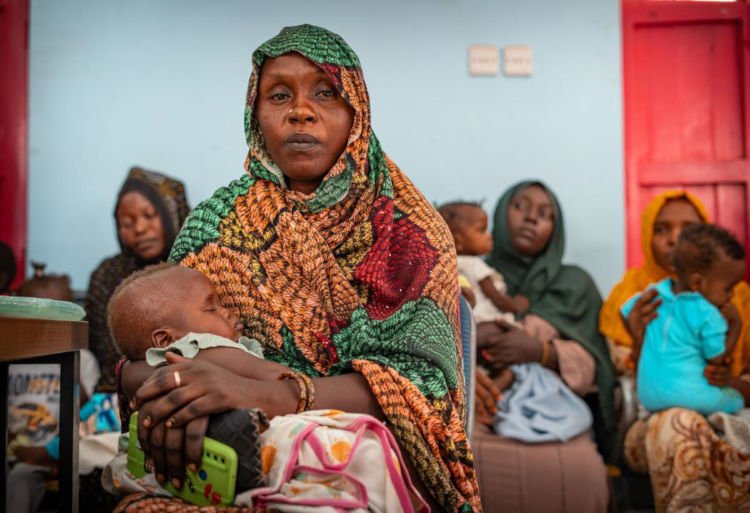The growing malnutrition crisis in Nigeria, especially in the northern region, demands urgent action from the Federal Ministry of Health and Social Welfare.
Development Diaries reports that according to Save the Children, an additional one million children in Nigeria will be suffering from acute malnutrition by April 2025 if no urgent action is taken.
With over two million children suffering and around 2,400 dying every day, this is a life-threatening emergency.
According to a report from the Inter Press Service (IPS), many poor families, forced to flee their homes due to violence, now live in crowded camps with little access to food and healthcare.
One of the biggest causes of hunger is insecurity. Armed groups have driven farmers from their land, making food even more scarce for struggling families. Many people now survive on unsafe scraps like cassava peels because they have no other option.
The government in 2020, introduced the National Multisectoral Plan of Action for Food and Nutrition, a 2021-2025 initiative aimed at tackling food security and malnutrition, with a focus on boosting food production through agricultural investment.
Unfortunately, the Ministry of Budget and Economic Planning has not effected this due to a lack of proper funding and implementation.
For years, organisations such as the International Committee of the Red Cross (ICRC), UNICEF, and Médecins Sans Frontières (MSF) have been sounding the alarm about the growing malnutrition crisis, stressing the urgent need for increased humanitarian support.
They have consistently urged the Nigerian government, aid organizations, and donors to take swift action to address the underlying causes of this worsening emergency.
The Nutrition Department under the Federal Ministry of Health and Social Welfare is responsible for tackling malnutrirition in Nigeria.
The question is, what is being done to curb this crisis?
The ministry must take immediate steps to ensure that life-saving nutrition, such as ready-to-use therapeutic food (RUTF), reaches these vulnerable children.
Also, partnering with groups like UNICEF and MSF, the government must provide more funding and resources to fight malnutrition effectively.
If the Federal Ministry of Health and Social Welfare does not act quickly, the crisis will spiral further out of control, putting millions of impoverished Nigerians at risk.
More children will die, and more families will continue to suffer without food, medical care, or a way to rebuild their lives.
Development Diaries calls on the health ministry to act now by increasing nutrition support, improving healthcare access, and ensuring that every child has the chance to grow up healthy and strong. The lives of Nigeria’s poorest people depend on it.
Photo Source: WFP







